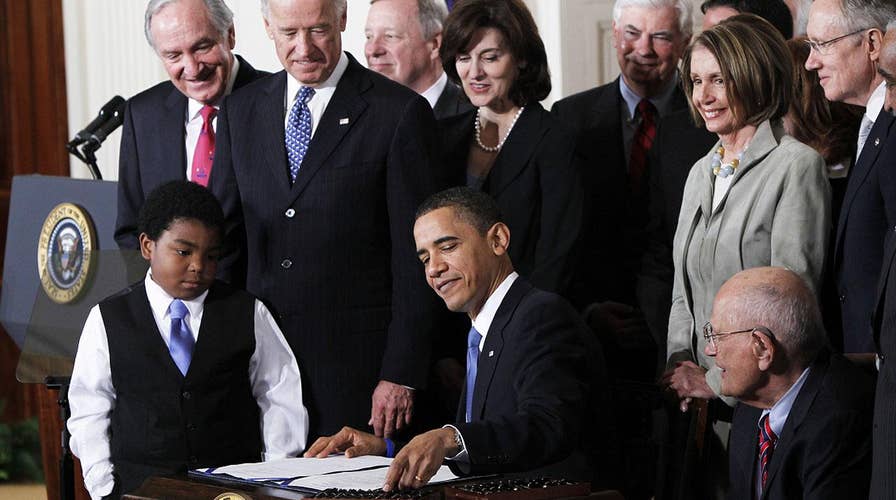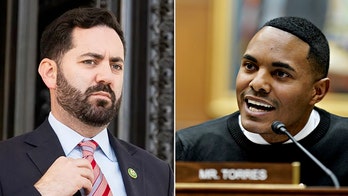Little movement on bipartisan effort to fix ObamaCare
Congress breaks for August recess with little progress on health care reform; Mike Emanuel reports from Capitol Hill
Republican lawmakers in Congress are heading home for summer break without following through on a major campaign promise – repealing and replacing ObamaCare.
It’s not due to a lack of effort, just coming up just one vote short on a so-called skinny repeal bill in the Senate.
Republican Conference Vice Chair Roy Blunt told Fox News in an interview that senators cannot stop working – noting it is the biggest domestic spending issue they are facing.
“We have to figure out how to make this work and sustainable where people have more access to health care rather than just more access to an insurance policy,” he said.
While the votes fell short, lawmakers vow to keep fighting for a health care overhaul.
When lawmakers return the week of September 5, the Senate Health, Education, Labor and Pensions Committee, led by Republican Lamar Alexander and Democrat Patty Murray, is expected to hold bipartisan hearings to look at steps that can be taken to bolster insurance markets.
President Trump is also threatening to stop making subsidy payments designed to help low-income Americans afford their premiums. The president has called them a bailout, and is pressing Congress to send him a health care bill he can sign.
That has gotten the attention of top Democrats on Capitol Hill.
“We have enough problems in the world right now without President Trump creating entirely new ones out of political spite and a petty vindictiveness,” Senate Democratic Leader Chuck Schumer warned this week on the Senate floor. “When you lose politically, you don't take it out on the American people. That's not presidential. That's just small.”
Other Republicans are still trying to sell their ideas on health care reform.
South Carolina Sen. Lindsey Graham is pushing a proposal to block grant health care money to the states. “Under ObamaCare, four states get 40 percent of the money: New York, California, Massachusetts, and Maryland,” Graham told Fox News. “My block grant approach takes the money that we spend here in Washington, sends it back to the states in a more equitable fashion.”
Blunt said lawmakers would take notice if governors say they back Graham’s proposal.
"If all 35 of them (34 Republicans, 1 independent) come to the Senate and say: ‘We want the Graham-Cassidy plan,’ that would be the best thing that could happen for the Graham-Cassidy plan,” he said. “Even better if a few Democrat governors would join them.”





